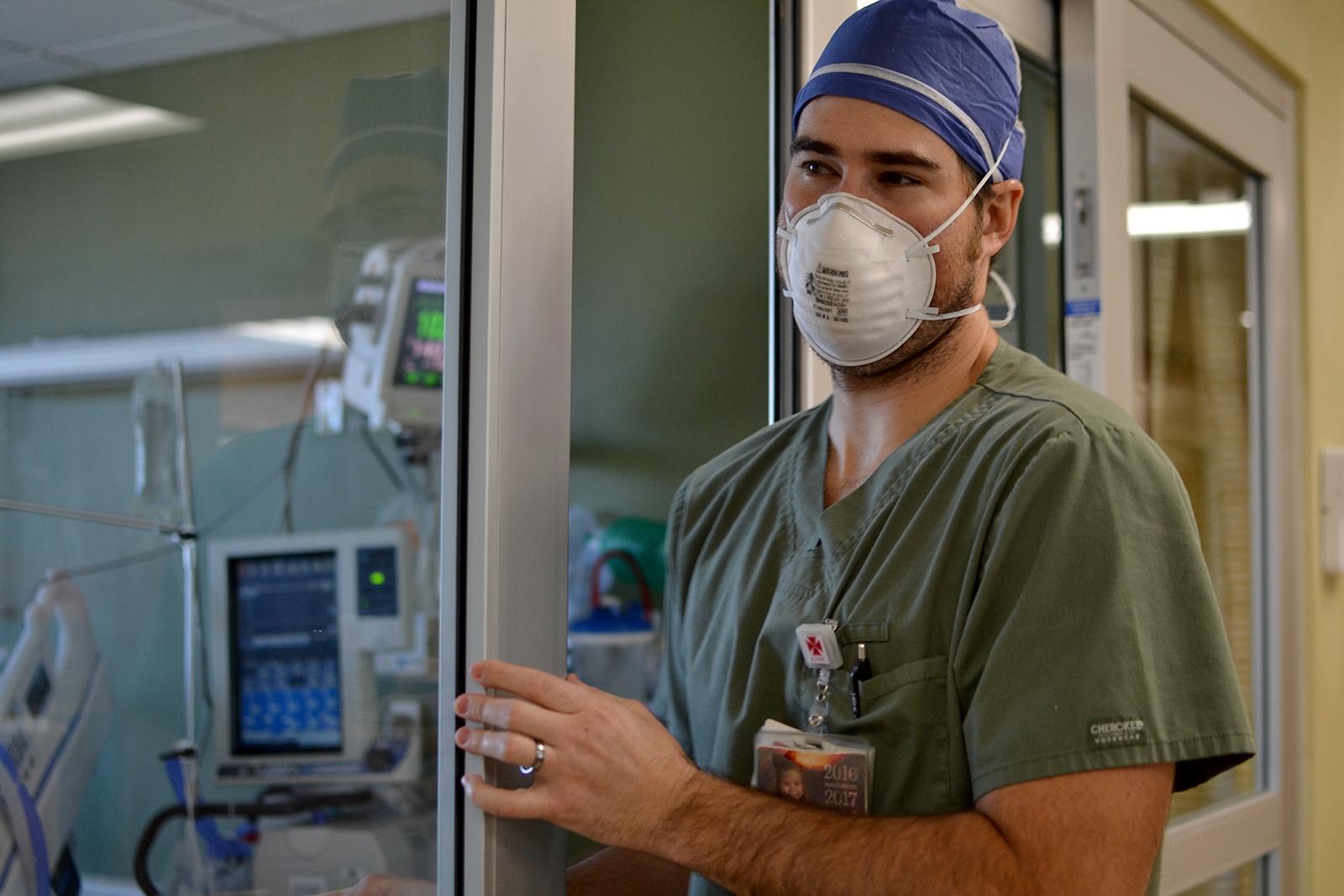When Troy Nations woke up from a coma last September, he’d been in the hospital for a month, but he wasn’t in the original bed or the emergency room he had checked into. He was half an hour down the road at King’s Daughters Medical Center, a facility in rural Brookhaven, Mississippi.
Nations, who is in his mid-30s but was unvaccinated at the time, had developed a case of COVID-19 so severe his lungs felt like they would collapse. Time was of the essence, but during the deadly Delta surge in the Gulf South, beds were sparse. That’s when King’s Daughters stepped in, finding space to treat him.
“They had double beds in all the emergency rooms, [patients] all on ventilators. All the ICU beds were full. It really looked like a war zone,” Caroline Nations, Troy’s wife, said. “And they were determined to get all their patients well.”
Caroline Nations believes that if her husband hadn’t ended up at the small town hospital, he wouldn’t have survived.
King’s Daughters, a small operation with about 99 beds, is one of the biggest employers in Brookhaven — a sleepy, little city 55 miles south of Jackson with about 12,500 residents. The town is split in half by railroad tracks dotted with small businesses, arcades and mom-and-pop diners.
Most hospitals outside Brookhaven are at least a 30-minute drive away making the facility critical to the community and literally life-saving for patients, like the Nations, from surrounding areas.
But as some states are emerging from the omicron surge, Mississippi hospitals are still in crisis, including King’s Daughters.
The number of people looking for care continues to grow, but hospitals statewide are reducing their bed numbers because there's no one to staff them. At the same time, an influx of federal money into the travel nurse market is likely driving up the cost of hiring the temporary staff necessary to fill workforce gaps. On top of patient and staffing issues, the bills keep piling up while resources remain limited.
Now, King’s Daughters — like many safety-net institutions in small towns across the country — faces an uncertain future.
“I’ve been looking at a worst-case scenario, getting worse and worse for two years now,” Alvin Hoover, King’s Daughters Medical Center CEO, said.



